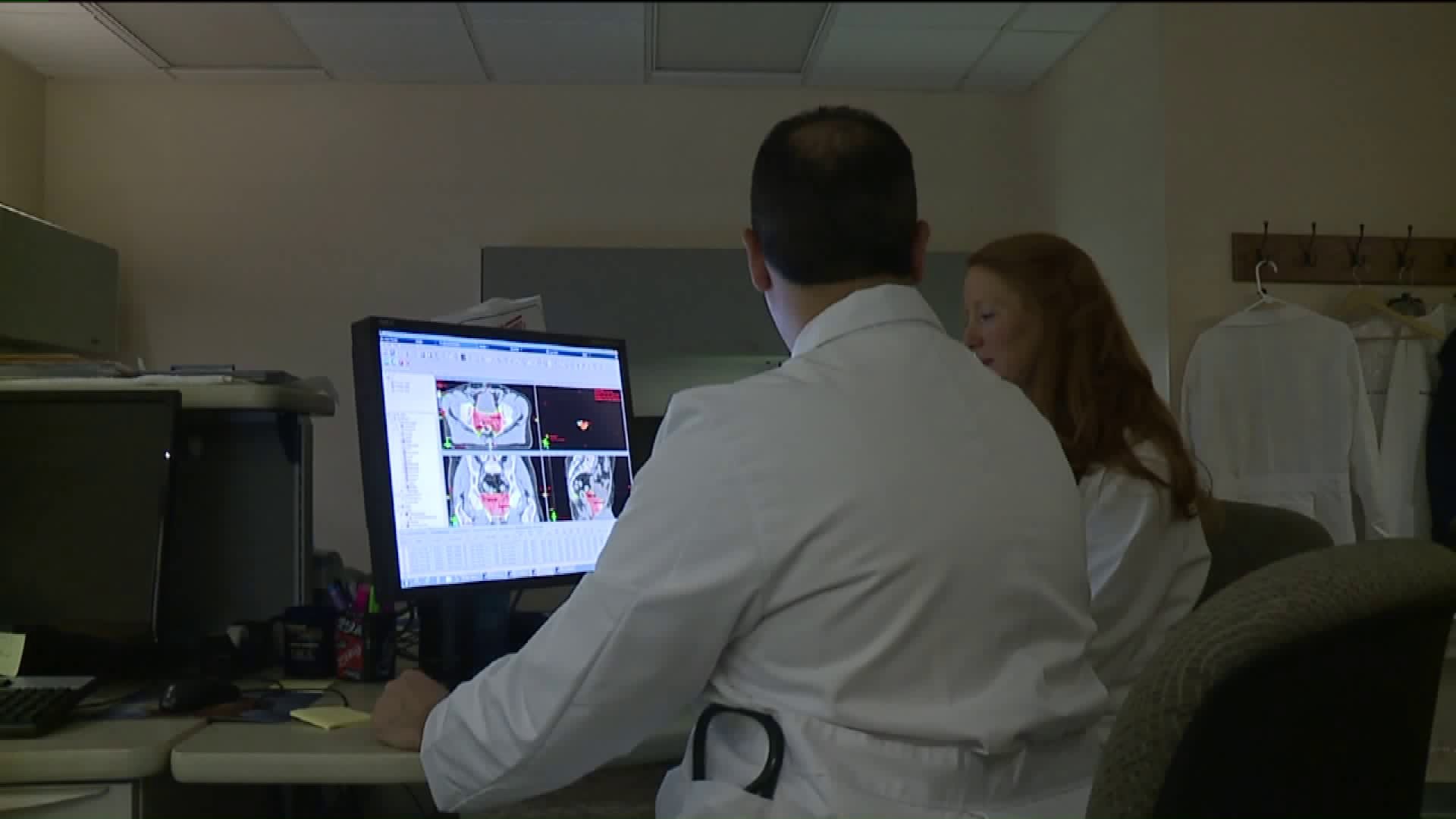DUNMORE -- If you're a longtime viewer of Newswatch 16, you may recall a time about 10 years ago when then-Chief Meteorologist Tom Clark was off the air for a while. He was dealing with a health scare: a diagnosis of early stage prostate cancer.
He's talking about it now to highlight the care he received at Northeast Radiation Oncology Center in Lackawanna County and to remind men to pay attention to their own health.
Dr. Chris Peters works at Northeast Radiation Oncology Center, an independent cancer center in Dunmore, Lackawanna County.
"For a patient, even who has an excellent prognosis, if they're told they have a diagnosis of cancer, that's an emergency for that patient. Everything stops. So sometimes we can be a tremendous benefit just being able to provide a consultation," said Dr. Peters.
He and his colleagues point out they try to meet all of their patients' needs, not just with radiation but through nutrition management, exercise help, even pet therapy.
Lily is a member of the staff, a soon-to-be-certified therapy dog. Lily belongs to Mary Klem, an oncology nutrition specialist at NROC. She's a certified dietician who is on staff to help patients feel their best while in treatment.
Several years ago, it was a familiar face the staff here at NROC was treating -- WNEP's own former Chief Meteorologist Tom Clark, who knew he had a family history of prostate cancer.
"My uncle, my grandfather had it, so when I turned 50, I started to check the old PSA, every 6 months," Tom explained.
PSA stands for prostate-specific antigen, which can be checked with a blood test.
An elevated PSA level can indicate a problem. Tom's third PSA check was concerning, and after a biopsy, doctors diagnosed prostate cancer.
That's when he had surgery to remove cancerous tissue and was off the air for a while as he recovered. His PSA went to zero he was cancer free.
"Couple years later, my PSA started to creep upward, very slight upward trend," said Tom.
That's when his urologist referred him to NROC and he met with Dr. Peters.
"The thing with prostate cancer is there are lots of treatment options for patients. That's a good thing, but it can also be overwhelming when you have lots of choice," Dr. Peters said.
Dr. Peters set Tom up on a low-dose radiation course, eight weeks, five days a week.
Tom says through it all, he didn't miss a single day of work.
"Treatment in the morning, went in, did my shows," Tom recalled.
After those treatments, his PSA went back down to zero, where it has stayed for years.
Tom credits NROC with giving him peace of mind. He is monitored there every six months and says he is healthy and feeling great.
It's a success story, if you ask Dr. Peters.
"There are patients with prostate or breast cancer that have horrible disease, rapidly progressive, there's very little that can be done, even at diagnosis. But that's the minority of patients. And that's a key message."

